6 Months After the Devasting Earthquakes in Afghanistan
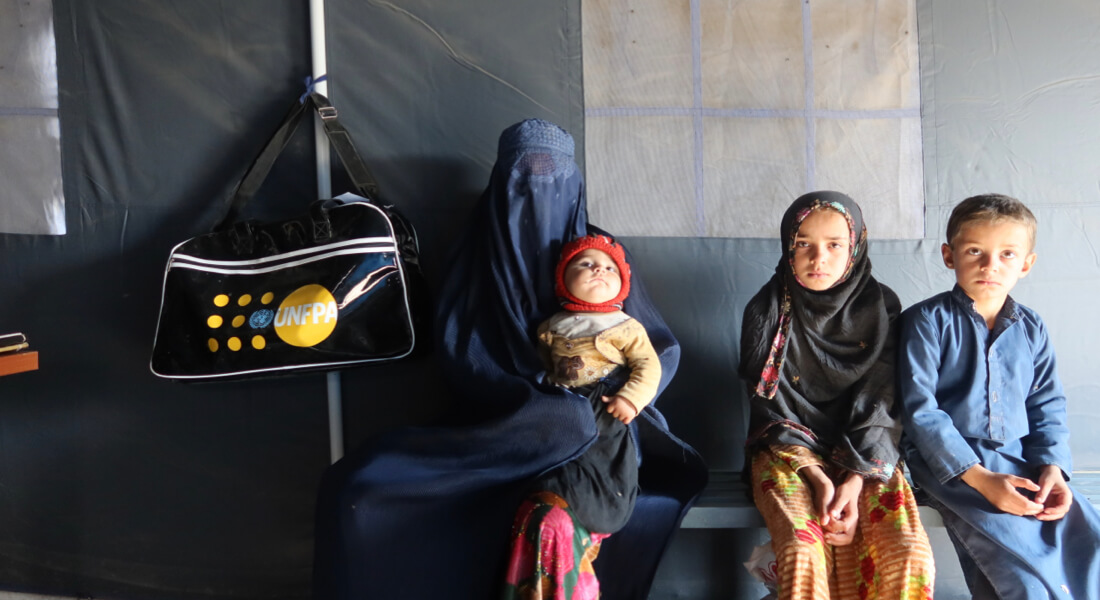
Between October 7-15 2023, 4 earthquakes struck the Herat Province in Afghanistan, affecting 1.6 million people. From the moment tragedy struck, UNFPA was on the ground delivering lifesaving care to women and girls affected – including the 7,000 pregnant women in need of immediate maternal health services. Follow the photo journey below to meet some survivors and see how UNFPA jumped into action.
Herat
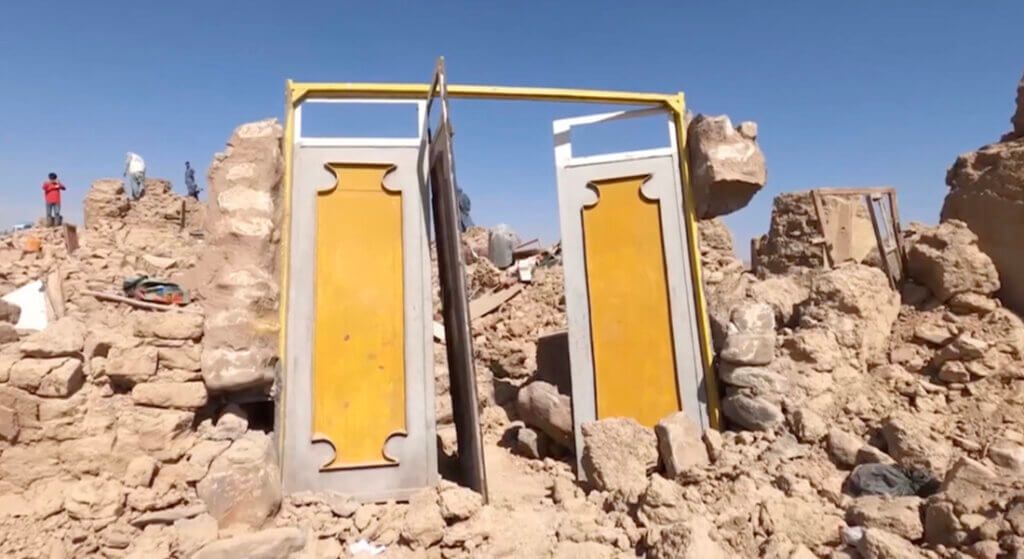
When the 6.3-magnitude earthquake violently rocked through the Herat province, entire villages were leveled. 25-year-old Shamaiel from Naieb Rafi village recalled: “I thought that somebody was shaking me. And then the roof collapsed.”
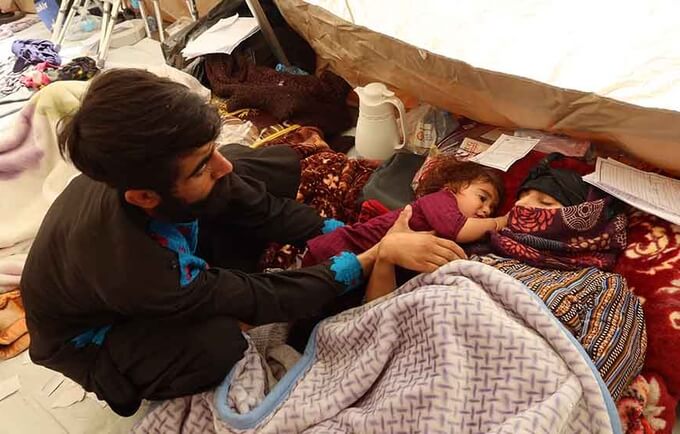
Shamaiel, who was nine months pregnant at the time, was trapped under her own home. After being extricated and brought to the hospital by ambulance, midwives helped her deliver her baby – but it was too late. The baby did not survive. Distraught and still suffering from immense physical pain, Shamaiel was grief-stricken.
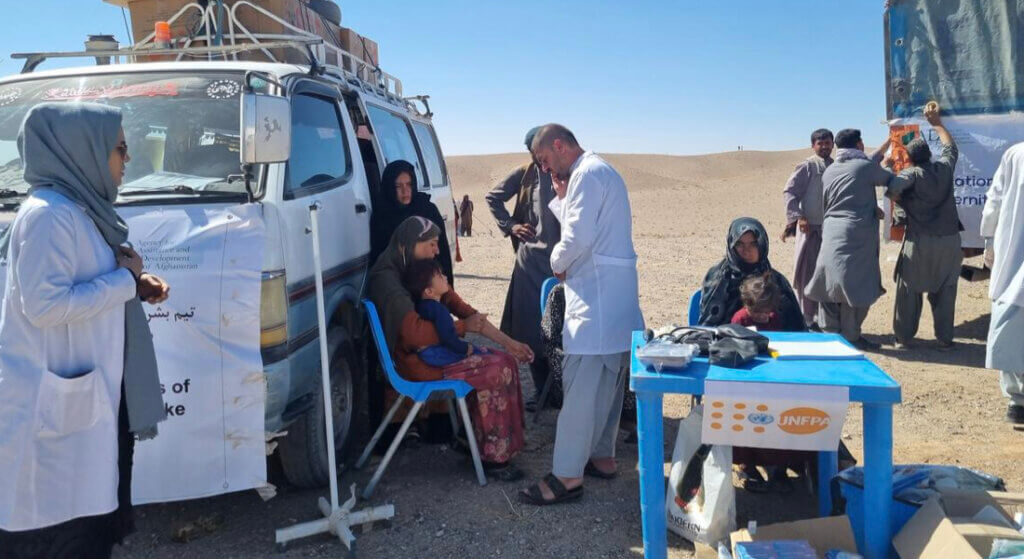
Only days later a UNFPA mobile health team arrived in Herat to treat a range of immediate needs for the survivors of the earthquake – from delivering premature babies to providing mental health counseling to women like Shamiel. Nearly 20,000 people were reached within just 10 days of the devastating earthquake. Currently, we are operating approximately 117 mobile health teams across Afghanistan, reaching an estimated 1.5 million people.
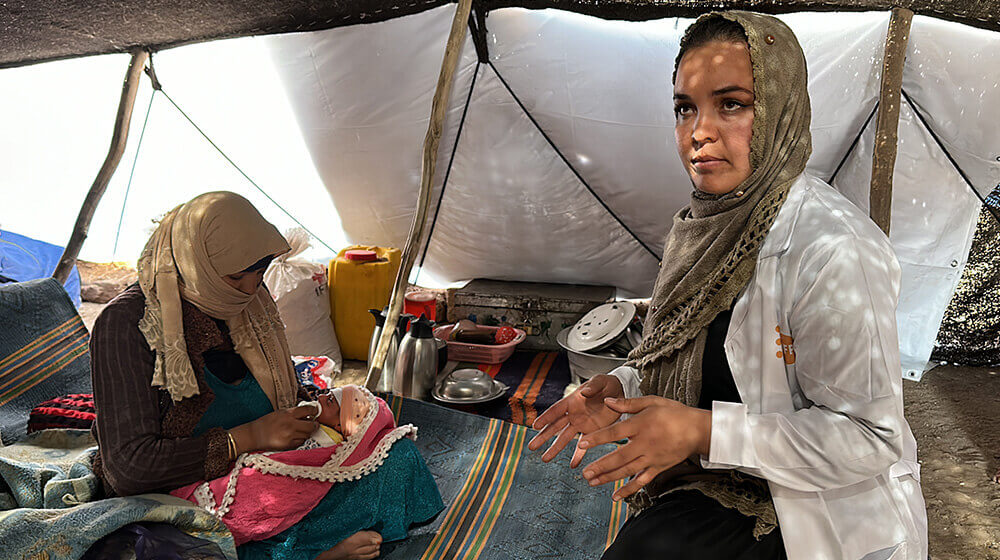
Hanifa’s home was destroyed during the first earthquake on October 7th – but that didn’t stop her baby from coming on October 15th. Displaced, hopeless and petrified, Hanifa recalls thinking “How can a mother bring a child into this chaos?“
But then Rahna, a UNFPA midwife arrived. She helped guide Hanifa through labor and safely delivered her baby into the world. Without Rahna, Hanifa would’ve been at increased risk of facing a life-threatening complication during the birth.
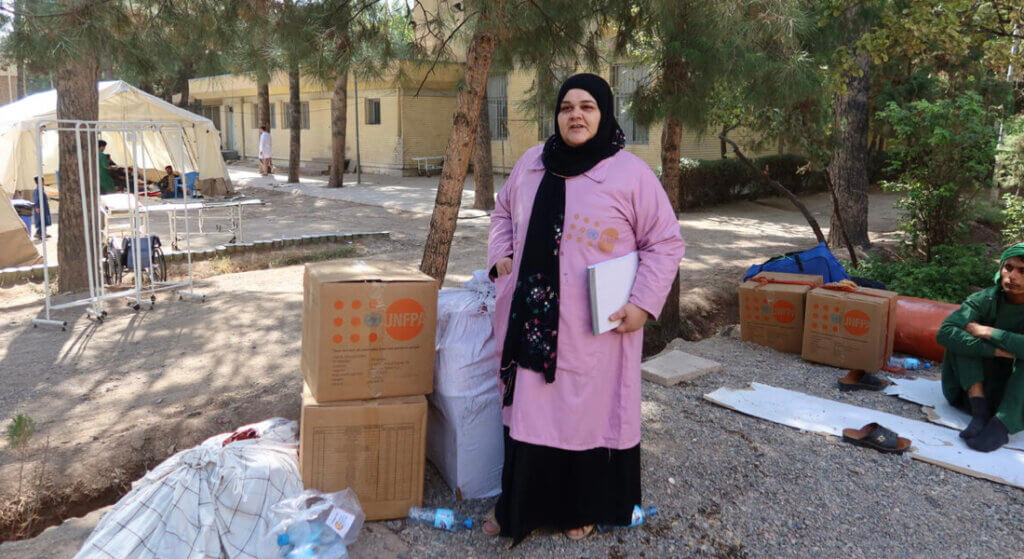
At the heart of our lifesaving services are dedicated midwives like Nafisa.
Nafisa is a midwife from a neighboring province who was deployed to Herat within 24 hours of the earthquake to support pregnant women through a UNFPA supported maternal health tent. Within 72 hours of the tragedy, UNFPA set up medical tents to provide immediate maternal health and psychosocial support on the ground. Today, these tents have been replaced with a fully equipped emergency maternity unit providing normal and cesarean-section delivery services, as well as counselling and mental health support for women and girls to help them cope with the grief of loss as they strive to rebuild their lives.
Below are some of the thousands of other women and girls who we’ve reached in the last 6 months:
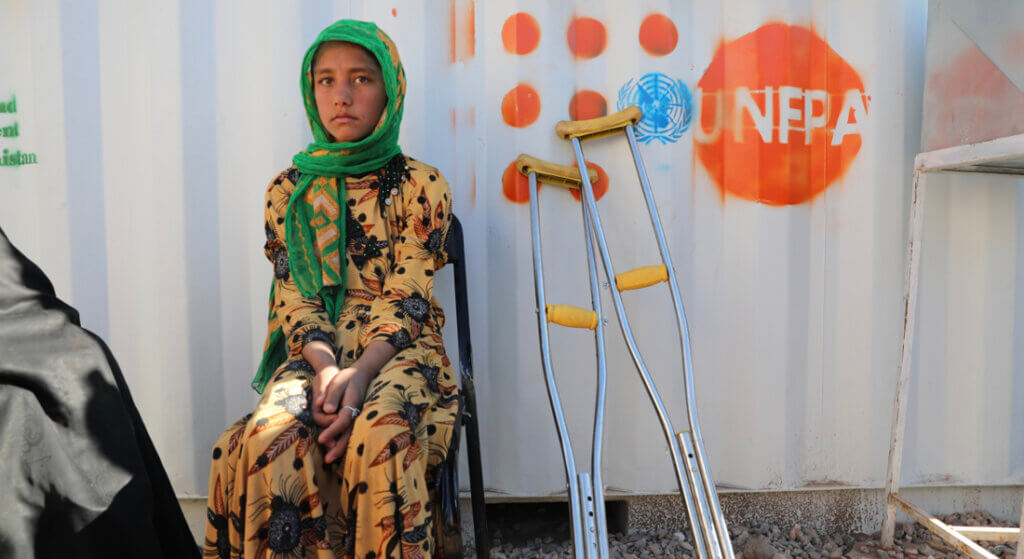
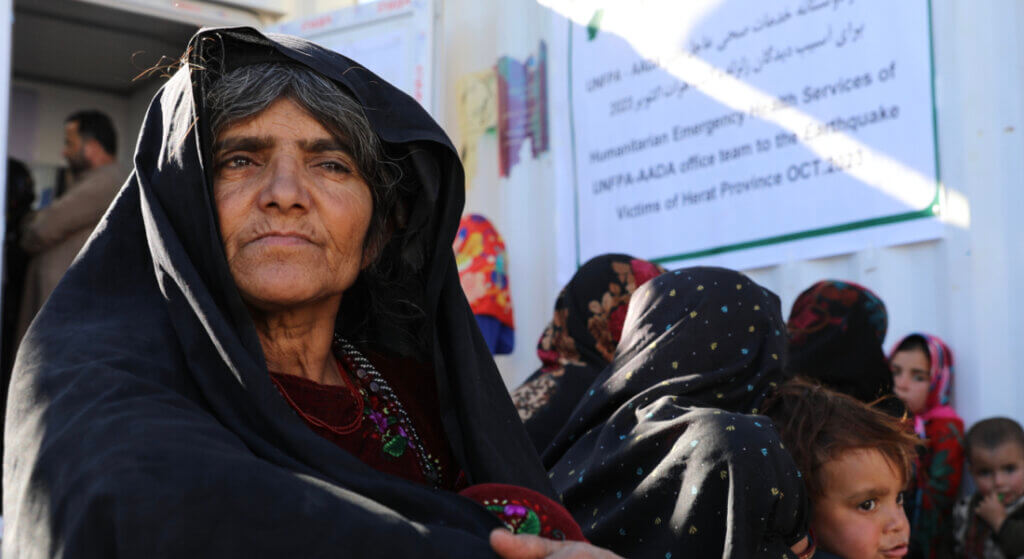
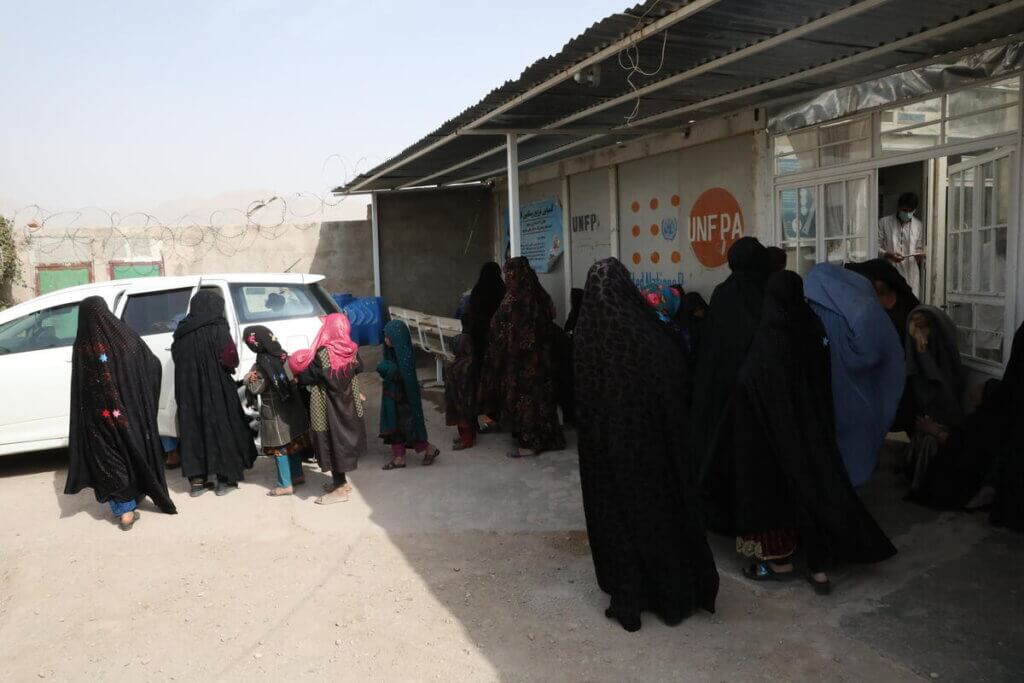
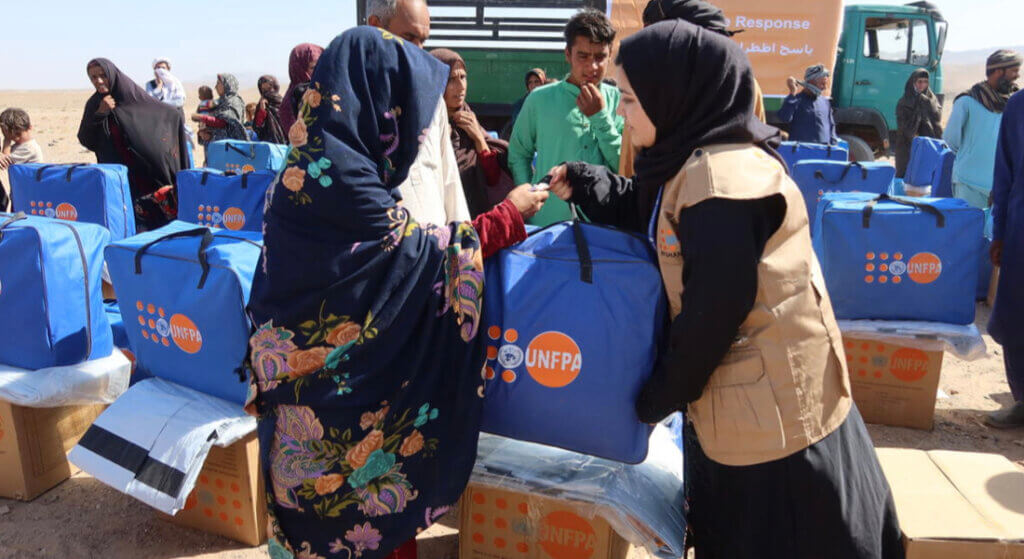
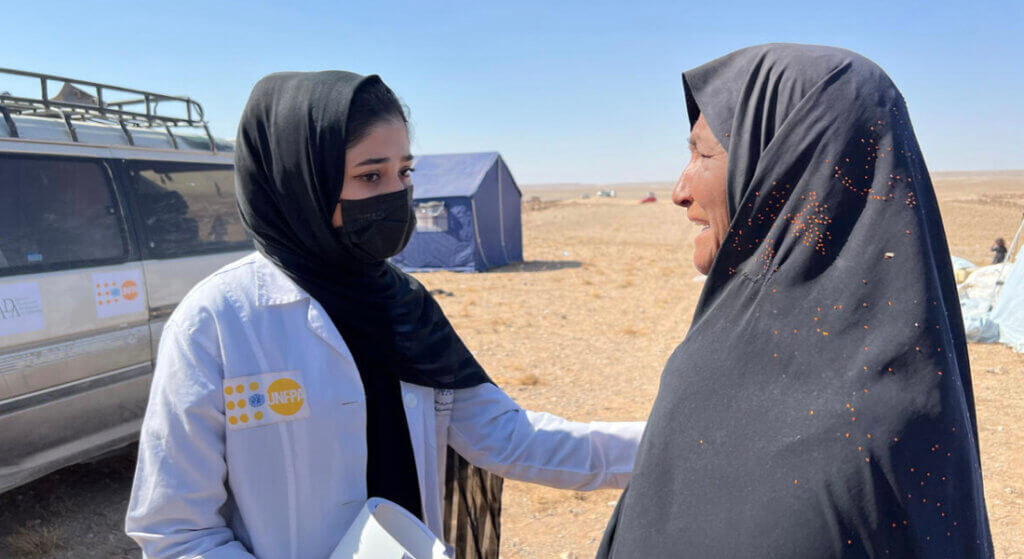
Your contributions have helped UNFPA support more than 700 health facilities across Afghanistan. In total, we are reaching more than 700,000 people every month. Thank you for your continued support of the women and girls in Afghanistan and across the globe.